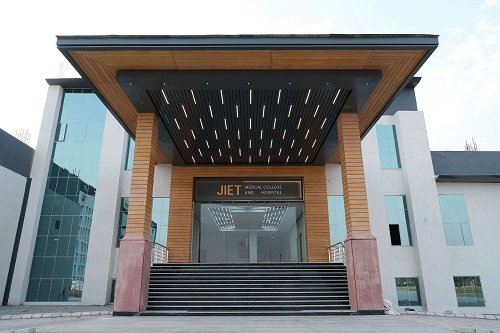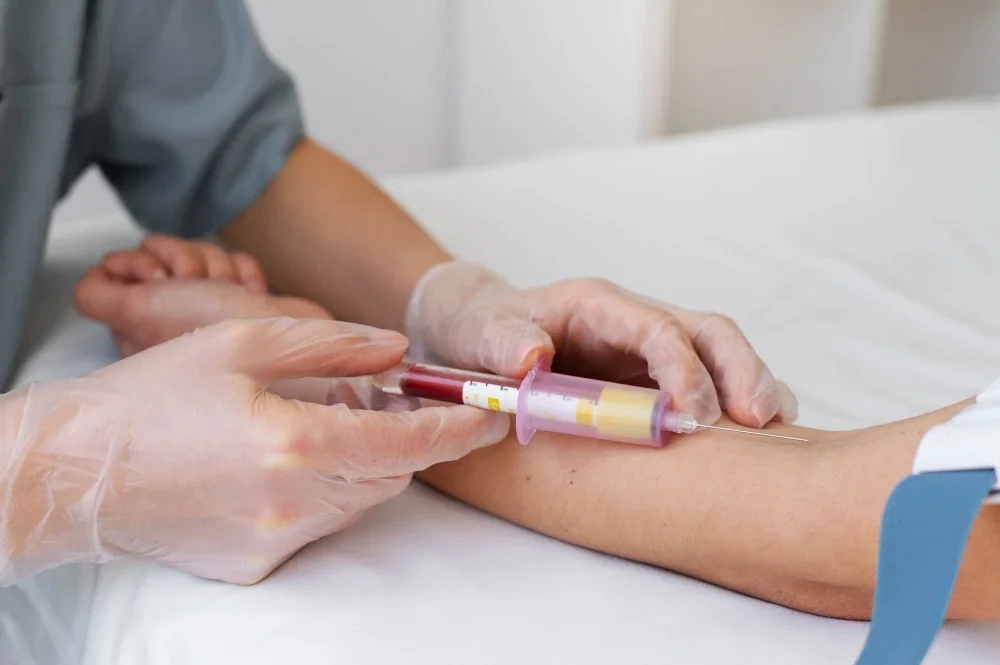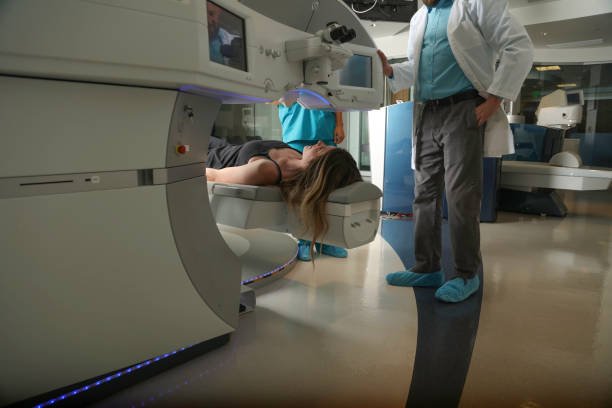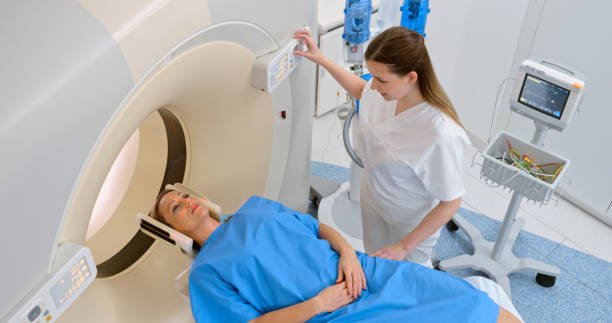
Department of Anesthesiology and Critical Care
Anesthesiology and Critical Care
About
Anaesthesiology, a branch of medicine, involves using medical drugs to induce a state of total or partial unresponsiveness, enabling the smooth execution of surgical procedures without causing distress to the patient. This field stems from Greek words meaning 'without sensation.' At JIET Hospital, the Department of Anaesthesiology utilizes advanced, safe, and patient-focused techniques to deliver anesthetic care. Experienced anesthesiologists ensure patient comfort during surgeries and manage pre-operative conditions and post-operative care. The four primary types of anesthetics include local anesthesia, conscious or IV sedation, regional anesthesia, and general anesthesia. The choice of anesthesia depends on the surgical procedure and patient health. Local anesthesia numbs a small area, IV sedation relaxes and relieves pain, regional anesthesia blocks pain in a larger region, while general anesthesia induces complete unconsciousness.| Doctor's Name | Qualification | Designation |
|---|---|---|
| Dr. Satyavir Singh Dhama | M.B.B.S., MD | Professor |
| Dr. Madhu Singhal | M.B.B.S., MD | Professor |
| Dr. Ashok Mohanty | M.B.B.S., MD | Associate Professor |
| Dr. Yogesh Kumar Chhetty | M.B.B.S., MD | Associate Professor |
| Dr. Rahul Singh | Associate Professor | |
| Dr. Kamal Kishore Chitara | M.B.B.S., MD | SAssistant Professor |
| Dr. Mani Ram | M.B.B.S., MD | Assistant Professor |
| Dr. Naina Chandnani | M.B.B.S., DNB | Assistant Professor |
| Dr. Renu Bansal | M.B.B.S., MD | Assistant Professor |
| Dr. Bhoomika Bihani | M.B.B.S., MD | Assistant Professor |
| Dr. Anubhuti Srivastava | M.B.B.S., DA, DNB | Senior Resident |
| Dr. Rekha Jadiya | M.B.B.S., MD | Senior Resident |
| Dr. Neeru Gaur | M.B.B.S., DA, DNB | Senior Resident |
| Dr. Kamlesh Kumar Sharma | M.B.B.S., MD | Senior Resident |
| Dr. Pankaj Barath | M.B.B.S. | Junior Resident |
| Dr. Basant Kumar | M.B.B.S. | Junior Resident |
| Dr. Arvind Vishnoi | M.B.B.S. | Junior Resident |
| Dr. Shishpal | M.B.B.S. | Junior Resident |
Key procedures (IPD)
Comprehensive Surgical Procedures Round-the-ClockUninterrupted Anesthesia Services Always AvailableExpertise in Varied Surgical SpecialtiesConsistent, Professional, 24/7 CareReliable, Safe, Around-the-Clock Operations
Key procedures (OPD)
Day Care Surgeries: Efficient, Quick Procedures with Short Recovery Time.
Key Equipment & Infrastructure
Cutting-edge anesthesia workstations enhance surgical safety.Advanced airway management tools ensure patient breathing.Ultrasound-guided nerve blocks promote precision anesthetic delivery.Labor analgesia techniques enable painless childbirth experiences.Separate, fully-equipped OTs for high-risk neurosurgical and cardiac procedures.
FAQs
-
Anesthesia is a medical treatment that prevents patients from feeling pain during surgery. It can be general (where the patient is unconscious) or regional (where only a part of the body is numbed).
-
Modern anesthesia is generally very safe. However, as with any medical procedure, there are risks. Safety can depend on factors like the health of the patient, the type of procedure, and the expertise of the anesthesiologist. It's essential to discuss any concerns with your anesthesiologist before surgery.
-
It depends on the type of anesthesia used. With general anesthesia, you will be unconscious and won't remember the surgery. With regional anesthesia, like spinal or epidural, you might be awake but won't feel any pain in the numbed area.n text goes here
-
Recovery times can vary based on the type of anesthesia and the individual patient. Most patients are awake shortly after the procedure but might feel groggy for several hours. It's recommended to have someone accompany you home after undergoing anesthesia.
Blog
यह छवि रक्त नमूना लेते समय की चिकित्सा प्रक्रिया को दर्शाती है, जो कैंसर की जांच और निदान में महत्वपूर्ण भूमिका निभाती है।
खून की जांच से शरीर में कैंसर से जुड़े संकेत, संक्रमण या उपचार की प्रतिक्रिया को समझने में मदद मिलती है।
यह चित्र कैंसर कोशिकाओं और DNA संरचना को दर्शाता है, जो यह समझाने में मदद करता है कि कैंसर इम्यूनोथेरेपी कैसे शरीर की इम्यून सिस्टम को सक्रिय करती है।
इम्यूनोथेरेपी में शरीर की प्राकृतिक प्रतिरोधक क्षमता को मजबूत कर कैंसर का आधुनिक इलाज किया जाता है, जिससे कैंसर कोशिकाओं को पहचानकर नष्ट किया जा सके।
A laboratory researcher carefully handling blood samples during advanced medical testing, representing innovation and precision in healthcare.
This visual reflects ongoing research efforts contributing to the Latest cancer treatment and modern diagnostic advancements.
Modern medical advances have made it easier than ever to find cancers early, but one thing hasn't changed: men sometimes find out about their cancers too late. A lot of men either ignore early signs, think they're not serious, or put off going to the doctor because they're busy or don't want to. Unfortunately, these unnoticed symptoms could sometimes be signs of dangerous diseases that are slowly growing in the body. Men can begin therapy at the best time by being aware of the early warning signs
Chemotherapy is one of the best ways to treat cancer, but it can also make you feel sick, give you mouth sores, make you tired, and change your taste. During this time, your body needs more nutrients to stay strong, keep your immune system strong, and heal faster.
Vitamin C is one of the most important nutrients for the human body because it helps cells repair themselves, boosts the immune system, and speeds up healing. But high-dose vitamin C has also gotten a lot of attention over time for another reason: it might be able to kill or weaken cancer cells. A lot of people want to know how it works and if it's safe. When you get cancer treatment, knowing the facts will help you make smart decisions.
Your body needs a lot of nutrition while you are getting cancer treatment, but one of the most common side effects is loss of appetite. Radiation, chemotherapy, drugs, stress, and changes in the digestive system can all make you less hungry.
Completing cancer therapy is a significant event. It is a moment of relief, pride, and hope. However, for many cancer survivors, the road continues after treatment is finished. Emotional healing takes time, and feeling nervous, overwhelmed, or uncertain about the future is common.Like the body, the mind requires support, comfort, and care after cancer.
Chemotherapy uses drugs to kill cancer cells throughout the body, while radiation therapy uses targeted high-energy rays to destroy cancer cells in a specific area. Chemotherapy affects the entire system; radiation therapy focuses on localized treatment.
The Oncology Department at JIET Hospital specializes in comprehensive cancer care, offering advanced diagnostics, personalized treatment plans, chemotherapy, radiation therapy, and supportive services. Our expert team is dedicated to improving patient outcomes through compassionate, state-of-the-art medical care.
JIET Hospital’s Oncology Department offers advanced cancer care with modern technology, expert oncologists, and compassionate support—ensuring holistic treatment, early detection, and personalized therapy for every patient’s journey.
ऑन्कोलॉजी कैंसर की पहचान और इलाज की विशेषज्ञ शाखा है, जिसमें कीमोथेरेपी, रेडिएशन और सर्जरी शामिल हैं। जीत मेडिकल कॉलेज, जोधपुर में कैंसर का संपूर्ण इलाज आरजीएचएस योजना के तहत सुलभ और विशेषज्ञ देखरेख में उपलब्ध है।
Radiation therapy, also known as radiotherapy, is a crucial treatment method in the fight against cancer. It employs high doses of radiation to kill cancer cells and shrink tumors.
पेट स्कैन (PET Scan) या पॉज़िट्रॉन एमिशन टोमोग्राफी एक उन्नत चिकित्सा इमेजिंग तकनीक है, जिसका उपयोग मुख्य रूप से कैंसर, हृदय रोगों और मस्तिष्क विकारों का निदान करने के लिए किया जाता है।
Cancer is a disease whose treatment is costly for the commoner. Mukhyamantri Chiranjeevi Yojana aims to provide free and high-quality health services to the poor and deprived sections of the state.
कैंसर एक ऐसी बीमारी है जिसका इलाज आम आदमी के लिए बहुत महंगा पड़ता है। मुख्यमंत्री चिरंजीवी योजना का उद्देश्य राज्य के गरीब और वंचित वर्ग के लोगों को मुफ्त और उच्च गुणवत्ता वाले स्वास्थ्य सेवाएं प्रदान करना है।
Have you ever wondered how the world of medical technology treats one of the most complex and intricate organs in our body? Welcome to the fascinating realm of radiation therapy for brain tumors!
When we talk about battling gastrointestinal (GI) cancers, radiation therapy often crops up in conversation. Let's be honest, anything involving the word "radiation" might sound a bit sci-fi
Lung cancer remains a significant global health challenge, but advancements in treatments like radiation therapy offer renewed hope.
Radiation therapy, or radiotherapy, is a standard treatment for breast cancer. This therapy uses high-energy particles or waves, such as X-rays, gamma rays, electron beams, or protons, to destroy or damage cancer cells.
Integrative medicine and radiation therapy together provide a holistic, comprehensive, and patient-centered approach to healthcare, focusing on the individual's physical, emotional, and social aspects.
Radiation therapy is a standard treatment for several types of cancer. It uses high-energy particles or waves, such as x-rays or gamma rays, to destroy or damage cancer cells.
Radiation therapy is a cancer treatment that uses high-energy beams to kill cancer cells. It is a very effective treatment, but it can also have side effects.
Cancer is a disease that can affect anyone, regardless of age, gender, or ethnicity. It occurs when abnormal cells in the body begin to grow uncontrollably, forming tumors
Prostate cancer is a common type of cancer that affects men, especially those over the age of 50.
Cancer surgery plays a crucial role in diagnosing, staging, and treatment of various types of cancer. At JIET Hospital in Jodhpur, Rajasthan, we are committed to providing cutting-edge surgical.
There are millions of people on the planet who are afflicted by the terrible disease of cancer. The good news is that medical technology has advanced,
Patients with cancer frequently choose radiation therapy as a kind of treatment. At JIET Hospital, we understand that every patient's
Head and neck cancers are a group of cancers that occur in the tissues and organs of the head and neck, including the mouth,





























